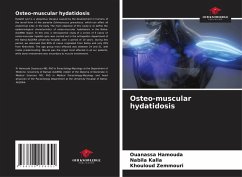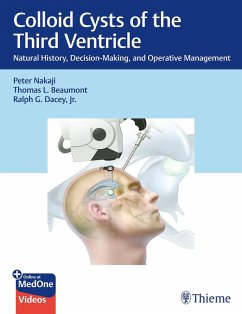
Cardio-pericardial hydatid cysts
Cardiac hydatid cysts
Versandkostenfrei!
Versandfertig in 6-10 Tagen
29,99 €
inkl. MwSt.

PAYBACK Punkte
15 °P sammeln!
Hydatid disease or hydatidosis is a cosmopolitan parasitic infection due to the development in humans of the larval form of a dog tapeworm: Echinococcus granulosus. Man is an accidental host, he takes the place of the herbivore. It is endemic in certain areas of the world such as the Mediterranean basin. It constitutes a real public health problem in Tunisia. It can affect all organs. Hepatic localization is the most common, followed by pulmonary localization. Cardio-pericardial hydatidosis is much rarer, it constitutes 0.5 to 2% of all visceral locations. Hydatid cyst of the heart is a seriou...
Hydatid disease or hydatidosis is a cosmopolitan parasitic infection due to the development in humans of the larval form of a dog tapeworm: Echinococcus granulosus. Man is an accidental host, he takes the place of the herbivore. It is endemic in certain areas of the world such as the Mediterranean basin. It constitutes a real public health problem in Tunisia. It can affect all organs. Hepatic localization is the most common, followed by pulmonary localization. Cardio-pericardial hydatidosis is much rarer, it constitutes 0.5 to 2% of all visceral locations. Hydatid cyst of the heart is a serious condition, which can be life-threatening due to its local and general complications. The seriousness of these complications requires, after confirmation of the diagnosis, rapid therapeutic treatment which is essentially based on surgical excision of the cyst. Medical treatment is an adjuvant treatment to surgery. The aim of surgery is to achieve complete resection of the cyst, good repair of the resulting parietal defect, and good exploration of the heart.














